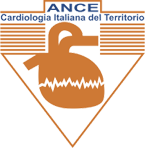Adiponectin is a key component in multiple metabolic pathways. Studies evaluating associations of adiponectin with clinical outcomes in older adults have reported conflicting results. We investigated the association of adiponectin with mortality and cardiovascular disease (CVD) morbidity in a young, multiethnic adult population. We analyzed data from participants in the Dallas Heart Study without baseline CVD who underwent assessment of total adiponectin from 2000 to 2002. The primary outcome of all-cause mortality was assessed over median 10.4 years of follow-up using multivariable-adjusted Cox proportional hazards models. Secondary outcomes included CVD mortality, major adverse cardiovascular and cerebrovascular events (MACCE), and heart failure (HF). The study cohort included 3,263 participants, mean age 43.4 years, 44% women, and 50% black. There were 184 deaths (63 CVD), 207 MACCE, and 46 HF events. In multivariable models adjusted for age, gender, race, hypertension, diabetes, smoking, high-density lipoprotein cholesterol-C, hyperlipidemia, high-sensitivity C-reactive protein level, estimated glomerular filtration rate, and body mass index, increasing adiponectin quartiles were positively associated with all-cause mortality Q4 versus Q1 (hazard ratio [HR] = 2.27; 95% confidence interval [CI] 1.47, 3.50); CVD mortality Q4 versus Q1 (HR = 2.43; 95% CI 1.15, 5.15); MACCE Q4 versus Q1 (HR = 1.71; 95% CI 1.13, 2.60); and HF Q4 versus Q1 (HR = 2.95; 95% CI 1.14, 7.67). Findings were similar with adiponectin as a continuous variable and consistent across subgroups defined by age, gender, race, obesity, diabetes, metabolic syndrome, or elevated high-sensitivity C-reactive protein. In conclusion, higher adiponectin was associated with increased mortality and CVD morbidity in a young, multiethnic population. These findings may have implications for strategies aimed at lowering adiponectin to prevent adverse outcomes.
The American Journal of Cardiology
http://dx.doi.org/10.1016/j.amjcard.2015.11.067
A cura di Calogero Calcullo
